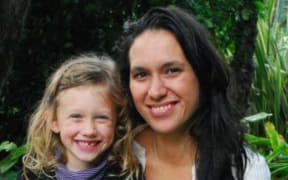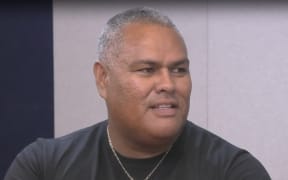The Child Poverty Action Group is calling for a rethink of the zero-interest student loan policy.

The introduction of interest-free student loans unintentionally put the cost of study onto students, the Child Poverty Action Group says. Photo: 123rf.com
The group has published a report on student hardship that recommends considering the reintroduction of interest on loans in return for more funding for students' living costs.
It said the zero-interest policy introduced in 2005 had the unintended consequence of allowing the government to put more of the cost of study onto students.
However, the government has rejected that, and said it not considering reintroducing interest onto student loans.
Child Poverty Action Group economics and welfare spokesperson, Susan St John, said even with zero interest, students in modest or low-paying jobs had trouble paying off their loans, which incurred compulsory repayments if students earned more than $19,084 a year (or $367 a week) before tax.

Susan St John. Photo: SUPPLIED
"Those that get modestly-paying jobs or are women at home with part-time work, they end up with this 12 percent effective tax that adds to everything else that they're paying on the income that they're earning and that is having disastrous effects on their lives."
Ms St John said reintroducing interest was not a simple fix and might need debt write-offs for past students.
Minister of Tertiary Education Steven Joyce said the government was not considering reintroducing interest on student loans, and doing so would lengthen the average student loan repayment times.
He said rates of participation in, and graduation from, tertiary education were at all time highs, which suggested the settings for tertiary education funding were about right.
"The person that graduates this year will probably pay it off in around six years if they stay in New Zealand and we think that's about right. The trouble with the idea of adding interest again is that would greatly lengthen that time post-study and therefore we're not supportive of that."
The report also recommended making more students eligible for allowances and increasing the amount students could borrow from the student loan scheme for living costs.
Ms St John said students with children were in particular need of more help because they were not eligible for the in-work tax credit of $72.50 per week and newborns did not qualify for the parental tax credit.

Minister of Tertiary Education Steven Joyce. Photo: RNZ / Alexander Robertson
"What we hear from food banks and so on is that students with children are really, really struggling.
"Now this is very counterproductive to ensuring that we have well-trained young people in the future."
The report said one third of full-time students were eligible for a student allowance of $210.13 per week.
Most students could not get an allowance because their parents earned more than the threshold of $84,163.86 gross if the student lived at home while studying, or $91,448.30 gross if living away from home.
Students on allowances could get an accommodation allowance of up to $60 per week, but unemployed people could get an accommodation supplement of up to $145 per week.
The author of the report, Max Lin, said the shortfall between students' cost of living and the amount of money they could get in allowances or from their student loans was about $100 a week.
He said not all students could get help from their parents or make enough money from part-time work to cover the difference.
"One in six students are in severe financial distress and the meaning of that is that students can't afford shelter and food.
"But more importantly we also see that one in two students are in financial distress, which means that they can't afford at least one essential item which is clothing, food shelter or medical expenses. So it is quite serious."
Mr Lin said students needed more money while they were studying and some form of income during their holidays too.
New Zealand Union of Students' Associations president Linsey Higgins said the number of students struggling to make ends meet was growing.
"We're seeing the caps on parental income thresholds for student allowances are really starting to pinch and the middle class are really feeling the strain of having to support their children as they move into tertiary study when they really can't afford to."
Ms Higgins said she was not convinced that bringing back interest on student loans was a good idea, and that it would have a negative effect on marginalised groups and especially on women.
The report's recommendations:
- Unfreeze the parental income threshold and increase the eligibility and amount of Student Allowance.
- At the very least, increase the maximum amount that can be borrowed for living costs and allow students to borrow up to the combined level of Student Allowances and the Accommodation Supplement.
- Make income support available for all students during the summer period from December to February.
- Increase the student loan repayment threshold and adopt a progressive system more similar to Australia's system.
- Increase subsidies for students living in high-rent areas (over two-thirds of their income).
- Increase funding for tertiary education so that the cost is not transferred onto students and consider the partial write-off of student debt.
- Evaluate the trade-off between a no interest rate policy and bringing back interest on student loans together with adequately funding universities and student support.
- Increase supplementary benefits for students with additional needs, such as dependent children and disabilities.







